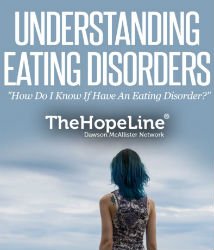The Stigma of Binge Eating Disorder in New Zealand
In New Zealand, binge eating disorder (BED) is often seen as a bit of a joke. It’s often spoken about in a way that suggests it’s not a real eating disorder, or that it’s not as serious as anorexia or bulimia. This is incredibly harmful and damaging to those who suffer from BED, as it perpetuates the idea that BED is not a real problem and that those who have it are just overeating for fun. This couldn’t be further from the truth.
Binge eating disorder is a very real and very serious eating disorder that can have a hugely negative impact on a person’s life. It’s characterized by periods of binge eating, where a person eats an excessive amount of food in a short period of time, often to the point of feeling uncomfortably full. These binges are often followed by feelings of shame, guilt and embarrassment.
Binge eating disorder can cause a range of physical and mental health problems, including obesity, type 2 diabetes, high blood pressure, high cholesterol, depression, anxiety and low self-esteem. It can also lead to social isolation and relationship problems.
Despite all of this, binge eating disorder is often seen as a bit of a joke in New Zealand. This is likely due to a lack of understanding about the disorder and its seriousness. It’s also likely due to the fact that, unlike anorexia and bulimia, binge eating disorder is more common in people who are overweight or obese. This means that many people see it as a problem that people bring on themselves, rather than an actual eating disorder.
This is incredibly harmful and damaging. It perpetuates the idea that BED is not a real problem and that those who have it are just overeating for fun. This couldn’t be further from the truth. Binge eating disorder is a very real and very serious eating disorder that can have a hugely negative impact on a person’s life.
If you or someone you know is struggling with binge eating disorder, please seek help from a qualified mental health professional. Binge eating disorder is a treatable condition and there is help available.









Recent Comments